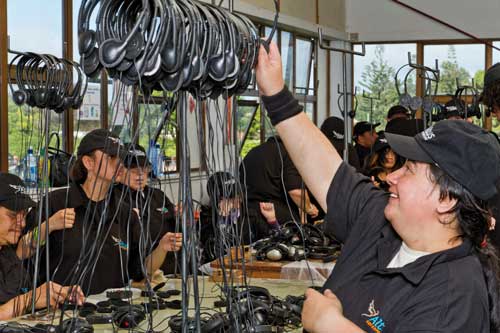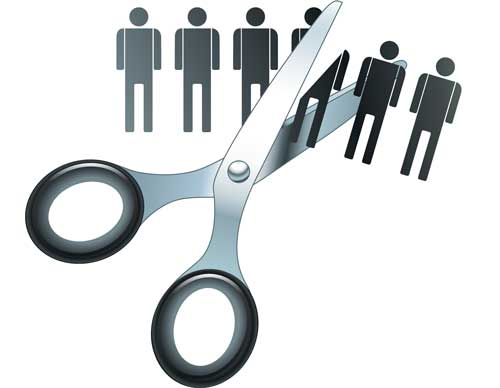Your eco-friendly paper man
Geoff Arden’s on a mission to convert businesses and consumers to a more sustainable choice in hand paper and toilet paper. NZBusiness tracks the progress of Greencane Ecopaper.
Geoff Arden’s on a mission to convert businesses and consumers to a more sustainable choice in hand paper and toilet paper. NZBusiness tracks the progress of Greencane Ecopaper.
It was a trip to Coromandel prior to the global recession that provided a defining moment for Geoff Arden’s latest business venture. Driving through a pine forest, he came across a whole hillside cleared of trees and was reminded of the brutal nature of harvesting pinus radiata in this country, particularly in erosion prone areas like the Coromandel.
“I couldn’t work out how the destruction of a forest with its resulting land scaring and washing away of top soil could be considered acceptable land management,” he says. “No farmer would accept that.”
This personal epiphany, coupled with the realisation of how the chain of supply from ‘trees to paper’ really works, proved to be the seed of an idea for Greencane ecopaper, and the growing market demand for recycled paper would prove to be the water for that seed.
Geoff Arden has a business career spanning almost 22 years. He launched New Zealand Hygiene in 1991 to meet the need for a local supplier of company hygiene services. That company has grown steadily and today boasts around 800 corporate customers, supplying hygiene, laundry and paper products and services.
Around five years ago, just prior to the recession taking hold, Geoff noticed a growing interest by his clients in recycled toilet paper. “It was a subject that kept coming up in conversations,” he recalls.
He began researching the differences between normal and recycled toilet paper. Recycled paper was developed to meet the consumer’s need for sustainable products, says Geoff – but it’s not the right track to get there. “It’s interesting that the world price for recycled product is higher than for virgin product,” he says, and, conscious of igniting a debate, suggests there’s a degree of green-washing associated with the industry.
Geoff’s research led him to ‘bagasse’ – a pulp that originates when sugarcane is harvested and crushed to remove the sugar, leaving a fibrious residue. This residue is then recycled by adding a small quantity of bamboo, creating a paper pulp technically known as bagasse, which has a very short fibre and therefore biodegrades very quickly.
Today, Greencane ecopaper includes around 20 to 30 percent of wood pulp to achieve a soft but strong paper. The product range, which consists of kitchen towels, facial tissues and toilet paper, makes perfect sense in a world that will increasingly struggle to survive using finite resources.
“When you consider that a tree grows for 25 years, is converted to toilet paper and flushed away, that’s the end of it – to me it doesn’t make sense. From a sustainable perspective, I’m looking to change the way people look at the allocation of resources,” says Geoff.
He’s concerned about a number of factors related to our management of trees. These concerns include the under valuing of trees, with poorly maintained so-called ‘lazy’ trees ending up as pulp, and the lack of bio-diversity in commercial harvesting (pine trees are almost exclusively preferred over other fast-growing hardwood trees).
Bagesse, on the other hand, is a waste product in large quantities that often has to be burnt, left to rot or converted to garden mulch – a renewable resource going begging.
Test marketing
Geoff utilised his business customers to pilot-market the GreenCane ecopaper products – with a goal to then move on to export markets. He’s already had considerable interest from Australia and several Pacific Rim countries.
Greencane produces both a retail ‘home’ range and a ‘business’ range through a partnership with a specialist ISO 14001-standard Chinese manufacturing plant. China is currently the best option for manufacturing this type of product, but Geoff’s wish-list includes the adoption of bagasse by the large multinational toilet paper manufacturers, and for it to be sourced from Queensland – the closest sugar-cane growing region to New Zealand.
He’s used the past two and a half years to ‘iron out all the bugs’ on the products and admits to being ‘blown away’ by the progress so far. The retail range was launched into New World supermarkets in May this year, and was available for some six months prior to that in organic stores – with pricing on a par with comparable ‘normal products’ he says.
“We’re basically using the retail market to build up brand awareness of the whole Greencane range – that awareness will then transfer over to the business market.” Business customers, specifically smart, savvy females who make the purchasing decisions, also do their personal shopping at the supermarket, he adds, and that’s where they’ll be exposed to the brand. “We believe in brands, we trust TV as an advertising medium and the ability of a supermarket to be a showroom for our products.”
When it comes to the marketing of his ecopaper, Geoff has taken on much of the responsibility. The TV commercial, for example, he created with the help of his two sisters.
This resourceful self-drive was evident when he first launched New Zealand Hygiene, he recalls. “I walked along Porana Road on Auckland’s North Shore, knocking on doors. The next day I was one block over, on Archers Road. I still have many of those first customers today,” he says. “Building face-to-face relationships is where any business has to start.”
Although the ecopaper range has been in the market for several months now, Geoff says they will continue to fine-tune the offering – and part of this is redesigning the packaging to better explain the product benefits and value-for-money proposition. “This is why New Zealand makes such a great test market to pilot your products – because in this game you never stop learning. You have to keep focusing on product development.”
Geoff urges business owners to take more responsibility for their sustainability initiatives – and this is where ecopaper can help. “It comes down to informed choice – people don’t have to buy it, but they should at least have the option,” he says.
Meanwhile Greencane ecopaper is catching on with business clients – Geoff already has around 600 customers buying the business range, with hand paper towels the biggest seller. His goal is for Greencane ecopaper to be a well-known and preferred option in the New Zealand business community by this time next year – as well as available in an export market. “That’s already on the cards.”





